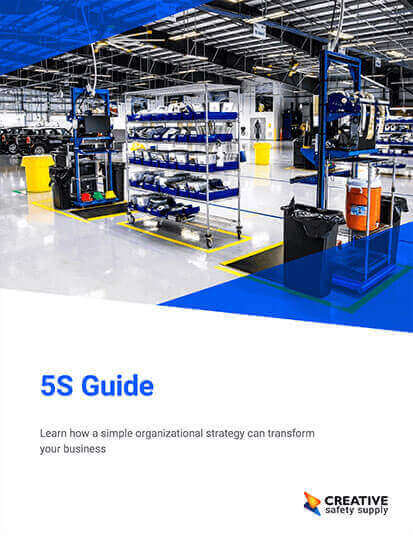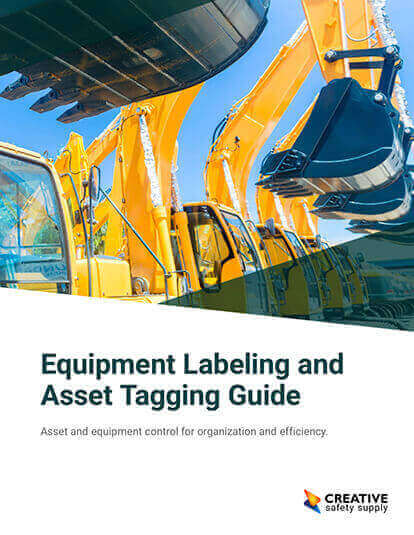
- Why Labeling is Important for Seed Storage
- Key Information About Labeling Fertilizers and Pesticides
- What is USDA Organic Labeling and Other Special Dietary Needs
- Labeling Non-Food Agricultural Products
- Exceptions to the Rules for Small Family Farms
- Benefits of Using Industrial Label Printers for Agricultural Labeling
- Learn More About Agricultural Labeling
Whether you operate a commercial farm or you are an employee at a small agricultural facility, it is important that you know all the rules and regulations that you need to follow. One thing that often gets overlooked when it comes to agricultural requirements is the proper labeling of different products and equipment.
Labels can be anything from nutritional facts about a food to warning labels on heavy equipment, and anything in between. Most industries have some type of labeling requirements, but few have as many as the agricultural industry. This is in large part due to the fact that the food and other products that are produced are directly used or consumed by people, so it is essential that everyone is kept safe.
There are many different laws and other documents that can help to show exactly what you need to do to meet your obligations related to agricultural labeling. This page will provide you with an introduction to some key aspects of this topic so you can discover what types of things will apply to your specific situation.
Why Labeling is Important for Seed Storage
Labeling for seed storage is vital to ensure the proper handling and management of seeds on farms and in agricultural facilities. Seed labels contain essential information, including the seed variety, harvest date, and packaging date. This information helps farmers track seed viability and freshness, allowing them to use the oldest seeds first to optimize germination rates. Proper labeling also assists farmers in selecting seeds suitable for their specific planting needs and helps prevent the accidental mixing of different seed varieties during storage.
Key Information About Labeling Fertilizers and Pesticides
Labels on fertilizers and pesticides provide critical information for safe and effective agricultural practices. These labels include instructions on the application rates, safety precautions, and protective measures required when using these chemical products. Properly labeled fertilizers allow farmers to apply nutrients accurately, optimizing crop growth and minimizing nutrient runoff. Pesticide labels inform users about potential hazards, usage guidelines, and reentry intervals, ensuring responsible application and protecting both human health and the environment.
What is USDA Organic Labeling and Other Special Dietary Needs
USDA Organic labeling indicates that agricultural products meet strict organic production standards. These labels are used on organic foods, indicating that they are free from synthetic pesticides, GMOs, and certain chemical fertilizers. Additionally, special dietary needs are addressed through labeling, such as gluten-free, kosher, halal, vegan, and vegetarian labels. These labels cater to individuals with specific dietary preferences or restrictions, allowing them to make informed food choices that align with their beliefs and health needs.
Labeling Non-Food Agricultural Products
Agricultural labeling extends beyond food products to include non-food items essential to farming practices. Labels for agricultural chemicals, pesticides, and fertilizers provide important safety and usage information. Proper labeling ensures that users can handle these products safely and responsibly, reducing risks to human health and the environment. Additionally, labels on agricultural equipment and machinery convey crucial safety instructions, enabling operators to use the equipment safely and efficiently.
Exceptions to the Rules for Small Family Farms
Special considerations and exemptions are often granted to small family farms, acknowledging the unique challenges they face compared to larger agricultural operations. These exceptions may include flexible label size requirements, cost-sharing programs, or simplified labeling guidelines. Such measures aim to support small farms in complying with labeling regulations without burdening them with excessive costs and administrative requirements.
In conclusion, agricultural labeling requirements are essential for ensuring transparency, consumer safety, and environmental responsibility in the agricultural industry. Proper labeling enables farmers and consumers to make informed decisions, support sustainable practices, and maintain product quality throughout the supply chain. With diverse labeling needs ranging from seed storage to non-food agricultural products, adherence to labeling regulations fosters a responsible and thriving agricultural sector that meets the demands of consumers and preserves the future of farming.
Benefits of Using Industrial Label Printers for Agricultural Labeling
Using industrial label printers for agricultural labeling offers numerous benefits that enhance efficiency, accuracy, and overall productivity in the agricultural sector. These specialized printers are designed to handle high-volume label production with precision, making them ideal for labeling various agricultural products, packaging, and equipment. Here are some key advantages of using industrial label printers in agriculture:
- Customization and Flexibility - Industrial label printers provide farmers and agricultural businesses with the flexibility to create custom labels tailored to their specific needs. Whether it's for seed packets, fertilizer bags, or product packaging, these printers can produce labels with variable data, such as batch numbers, expiration dates, and barcodes. Customizable labels allow for better inventory management, traceability, and compliance with industry regulations.
- High-Speed Printing - Agricultural operations often involve large quantities of products that require labeling. Industrial label printers can print labels at high speeds, significantly reducing label production time and increasing operational efficiency. This speed is especially valuable during peak seasons when there is a high demand for labeled products.
- Durable and Weather-Resistant Labels - Agricultural products often face harsh environmental conditions during transportation, storage, and outdoor use. Industrial label printers can produce durable and weather-resistant labels that withstand exposure to moisture, UV rays, and other environmental factors. These robust labels ensure that vital information remains legible throughout the product's lifecycle.
- Cost-Effectiveness - While industrial label printers may require a higher upfront investment compared to standard office printers, they offer long-term cost savings due to their ability to print labels in bulk. By eliminating the need for outsourcing label production or purchasing pre-printed labels, agricultural businesses can save on printing costs and reduce lead times.
- Compliance and Regulatory Standards - Industrial label printers enable farmers and producers to meet regulatory labeling requirements accurately. They can print labels with the necessary product information, allergen declarations, organic certifications, and other mandatory details mandated by food safety regulations. Compliance with these standards builds consumer trust and ensures that products meet industry best practices.
While there are pre-printed labels that are designed specifically for agricultural environments, most companies will find that they also need to create custom labels. Having the ability to do this right on site helps to save time and ensure compliance with all relevant regulatory requirements.
Learn More About Agricultural Labeling
Continuously learning about agricultural labeling requirements is of utmost importance for various reasons that contribute to the success and sustainability of the agricultural industry. Firstly, staying updated with labeling regulations ensures compliance with ever-changing legal standards. Government agencies, such as the FDA and USDA, regularly update labeling requirements to address emerging challenges, technological advancements, and consumer demands. Keeping abreast of these changes enables agricultural businesses to avoid costly penalties and maintain a positive reputation with consumers who value transparency and adherence to regulations.
Furthermore, learning about agricultural labeling requirements fosters consumer trust and confidence. In an increasingly conscious and informed market, consumers seek accurate and reliable information about the products they purchase. Proper labeling empowers consumers to make informed choices based on their dietary preferences, ethical beliefs, and health needs. A clear and comprehensive label provides consumers with essential details about the product's origin, ingredients, certifications, and handling instructions. By providing accurate and transparent labeling, agricultural businesses can build lasting relationships with consumers, leading to repeat business and brand loyalty.
Moreover, understanding agricultural labeling requirements cultivates a culture of safety and responsibility within the industry. Properly labeled agricultural chemicals, pesticides, and equipment promote safe handling practices, protecting workers, the environment, and consumers. By following labeling guidelines, agricultural businesses contribute to sustainable agricultural practices that minimize environmental impact, reduce foodborne illnesses, and optimize crop yields.
In conclusion, continuous learning about agricultural labeling requirements is essential for the industry's growth, consumer satisfaction, and long-term success. Compliance with regulations, consumer trust, and a commitment to safety are all directly influenced by the knowledge and implementation of proper labeling practices. By embracing evolving labeling standards and technological advancements, the agricultural industry can continue to thrive, providing consumers with safe, sustainable, and transparent products for years to come.
Similar Articles
- Introduction to Shipping Container Labeling
- A Simple Guide to Transportation Industry Labeling Strategies
- Pharmaceutical Labeling
- Labeling Practices for Power Generation Facilities
- Solar System Labeling
- Arc Flash Labeling (Updated)
- ANSI TIA 606-B Cable Labeling Standards
- Rack Labeling
- Anhydrous Ammonia – Safety & Labeling


